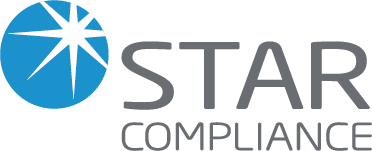This week, Elinphant CEO Elin Cherry lends us her expertise in handling this increasingly common situation
Cryptocurrency has arrived in force, and it's not just Bitcoin anymore. Coinmarketcap.com, a market tracker, currently lists 1577 cryptocurrencies being traded on 10417 cryptocurrency exchanges, with an emphasis on currently. Check back tomorrow and either number may have gone up, or down. That's how mercurial the cryptocurrency market overall is right now.
Initial Coin Offerings, or ICOs, are also surging in both numbers and popularity. ICOs are less cryptocurrenciesthan cryptosecurities. Maybe. The market for them is so new no entity in the private or public sector has quite gotten its head around them. The same goes for Bitcoin and its numerous offspring. Mainstream financial firms are wary or outright dismissive of anything crypto, and regulators have yet to issue any firm guidance other than stern warnings for investors to tread carefully.
But whatever the format, crypto is here and doesn't seem to be going anywhere. Bitcoin has been around for nearly 10 years. And employees are participating in these markets, very possibly yours. As such, financial firms need to formally acknowledge the fact and supplement their related policies sooner rather than later. The good news is, though the crypto marketplace is novel most of the activity can be looked at through the lens of your firm's current employee trading, private investment, and outside business interest policies.
But many firms have yet to do this. Maybe the idea seems daunting, but it doesn't have to be. Following are some straightforward strategies and basic guidelines for making the most out of what you have to work with as an enterprise financial firm.
BUYING AND SELLING CRYPTOCURRENCY
- It’s currently not possible to monitor cryptocurrency transactions. The markets are too many and too unregulated. And compliance software generally needs regulation to key off of.
- Monitoring or prohibiting cryptocurrency transactions can therefore only be accomplished by policy declarations and employee attestations. But both of these are often ineffective.
- As such, cryptocurrency trading should be permitted and simply be treated as any other checking, savings, currency transaction, or precious metals transaction.
BUYING AND SELLING CRYPTOCURRENCY FUTURES
- If your firm already requires futures to be precleared and/or disclosed, it should similarly require cryptocurrency futures to be precleared and/or disclosed.
- If your firm doesn't require futures to be precleared and/or disclosed, it should. There's no compelling reason not to preclear for futures trades if you preclear for other securities.
BUYING AND SELLING ETFS THAT INCLUDE CRYPTOCURRENCY
- Like with cryptocurrency futures, if your firm currently requires ETFs to be precleared it should similarly require ETFs with cryptocurrency exposure to be precleared.
- And if your firm doesn't currently require ETFs to be precleared, it should. There's no reason not to preclear for ETF trades if you preclear for futures or any other securities.
PRIVATE INVESTMENTS/OUTSIDE BUSINESS ACTIVITIES WITH EXPOSURE TO CRYPTO
- Most financial firms require disclosure and preclearance of private investments and outside business activities. This typically includes any investing done through hedge funds or other similar investing vehicles. Therefore, hedge fund investments and other private investments with exposure to crypto must be disclosed and precleared.
- Following this line of thought, any owner, director, or employee of a company that participates in any crypto market must disclose this fact. Examples of crypto involvement include exchanges, wallets, mining companies, and companies that create cryptocurrency.
- Remind your employees that private investments and outside business activities should be reviewed by your firm and updated. Update when any investment activity takes place as well as on an annual basis.
- Bottom line: private investments and outside business activities with exposure to crypto should be approved so long as there’s no conflict with the firm.
PARTICIPATION IN INITIAL COIN OFFERINGS
- Initial Coin Offerings, or ICOs, are difficult if not impossible to monitor. Again, the exchanges are too many and unregulated. And ICOs can pose a significant risk to firms and employees.
- While thinking and guidelines are still evolving, ICOs can and should be considered securities. If your firm prohibits participation in IPOs, participation in ICOs can and should also be prohibited.
- If the firm will not consider an ICO a security, it should be precleared the way a private investment or outside business activity would.
MINING CRYPTOCURRENCY OR INVESTING IN A COMPANY THAT MINES CRYPTOCURRENCY
- Mining is an outside business activity and needs to be disclosed and precleared as such.
- Remind employees that certain types of mining, creating, or releasing of cryptocurrencies comes with insider-trading risk.
THE RISK TO EMPLOYEES ENGAGED IN CRYPTO ACTIVITY
- With cryptocurrencies and cryptosecurities soaring and crashing with such speed and frequency, your employees could rapidly find themselves in financial distress.
- With guidance on, and experience with, crypto so scant, your employees risk running afoul of insider trading and money-laundering laws.
- Novelty and lack of regulation means risks abound in the crypto markets: risk of outright fraud surrounding the products or the exchanges, as well as uncharted regulatory risk as governing laws slowly but inevitably come into being.
FINAL SUGGESTIONS
- Review your firm's employee trading, private investment, and outside business policies as they relate to cryptocurrencies and cryptosecurities.
- Update all current policies to include cryptocurrencies and cryptosecurities.
- Describe the risks to employees and the firm regarding participation in crypto activities.
- Clarify to employees that all crypto activities are covered by current firm policies.
- Communicate crypto policies and guidance to all firm employees. Include crypto activities in your firm's annual attestations.
THE OPEN-ARCHITECTURE APPROACH
Cryptocurrencies and cryptosecurities have gained widespread attention, not just from investors but from regulators. But while regulations and rules governing cryptocurrency will be important, and are no doubt coming, they're very much in the development phase. Crypto is simply not well understood right now, in the public or private sector.
Until it is, firms should adopt an open-architecture approach. That is, maintain flexibility. Don't create policies that are difficult to change, because the world of crypto is changing, even as you read this, and will continue to do so. To protect your firm and your employees until the marketplace matures, your best course of action is to make the most of your own policies. They offer more opportunity to address the burgeoning issue of employee participation in the crypto markets than you might think.


